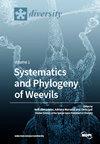Differences in the Composition of Akkermansia Species and Families of Christensenellaceae and Ruminococcaceae Bacteria in the Gut Microbiota of Healthy Polish Women following a Typical Western Diet
IF 2.1
3区 生物学
Q2 BIODIVERSITY CONSERVATION
引用次数: 0
Abstract
The gastrointestinal microbiota consists of trillions of microorganisms that live symbiotically in the human body. The main factor influencing the formation of the gastrointestinal microbiota is lifestyle, particularly the diet of people from different geographic regions. As described in several reports, the gut microbiota composition of healthy adults can be stable for years. However, the relative abundance of each microbe fluctuates over time, and it varies between individuals and within individuals over the course of their lives depending on many factors such as diet and gender. The study aimed to define the basic profile of the oral and gut microbiota in healthy people of Polish ethnicity under the Western diet, showing the stability under one type of diet and dependence on gender. The study group included 144 healthy adults. The research materials were swabs and stool samples. The KomPAN questionnaire was used to examine eating habits. Bacterial 16S rRNA genes were sequenced using the next-generation sequencing (NGS) technology. The respondents followed a typical Western diet. There were no statistically significant differences in alpha species diversity in the oral and gut microbiota between the female and male groups. Statistically significant differences were found in the beta diversity between gut microbiota composition in women and men (p < 0.048). The oral microbiota was dominated by Firmicutes and Proteobacteria, and Firmicutes dominated the gut microbiota. According to the received results, it was found that in healthy adults of Polish origin, there is a basic profile of the oral and gut microbiota ensuring good health condition.典型西方饮食后健康波兰妇女肠道菌群中Akkermansia种、Christensenellaceae科和Ruminococcaceae科细菌组成的差异
胃肠道微生物群由数万亿微生物组成,它们在人体内共生。影响胃肠道微生物群形成的主要因素是生活方式,特别是来自不同地理区域的人的饮食。正如几份报告所述,健康成年人的肠道微生物群组成可以稳定多年。然而,每种微生物的相对丰度会随着时间的推移而波动,而且在个体之间和个体内部的丰度会随着人的一生而变化,这取决于饮食和性别等许多因素。该研究旨在确定波兰裔健康人在西方饮食下口腔和肠道微生物群的基本特征,显示一种饮食类型下的稳定性和对性别的依赖性。研究小组包括144名健康成年人。研究材料为拭子和粪便样本。使用KomPAN问卷调查饮食习惯。采用新一代测序(NGS)技术对细菌16S rRNA基因进行测序。受访者遵循典型的西方饮食。在雌性和雄性之间,口腔和肠道微生物群的α物种多样性没有统计学上的显著差异。女性和男性肠道菌群组成的β多样性差异有统计学意义(p <0.048)。口腔菌群以厚壁菌门和变形菌门为主,肠道菌群以厚壁菌门为主。根据收到的结果,发现在波兰血统的健康成年人中,口腔和肠道微生物群的基本概况确保了良好的健康状况。
本文章由计算机程序翻译,如有差异,请以英文原文为准。
求助全文
约1分钟内获得全文
求助全文
来源期刊

Diversity-Basel
Environmental Science-Ecological Modeling
CiteScore
3.40
自引率
12.50%
发文量
925
审稿时长
11 weeks
期刊介绍:
Diversity (ISSN 1424-2818) is an international and interdisciplinary journal of science concerning diversity concept and application, diversity assessment and diversity preservation. It is focused on organismic and molecular diversity. It publishes reviews, regular research papers and short notes in the regular issues. Related news and announcements are also published. Our aim is to encourage scientists to publish their experimental and theoretical results in as much detail as possible. Therefore, there is no restriction on the length of the papers. Full experimental details must be provided so that the results can be reproduced.
 求助内容:
求助内容: 应助结果提醒方式:
应助结果提醒方式:


